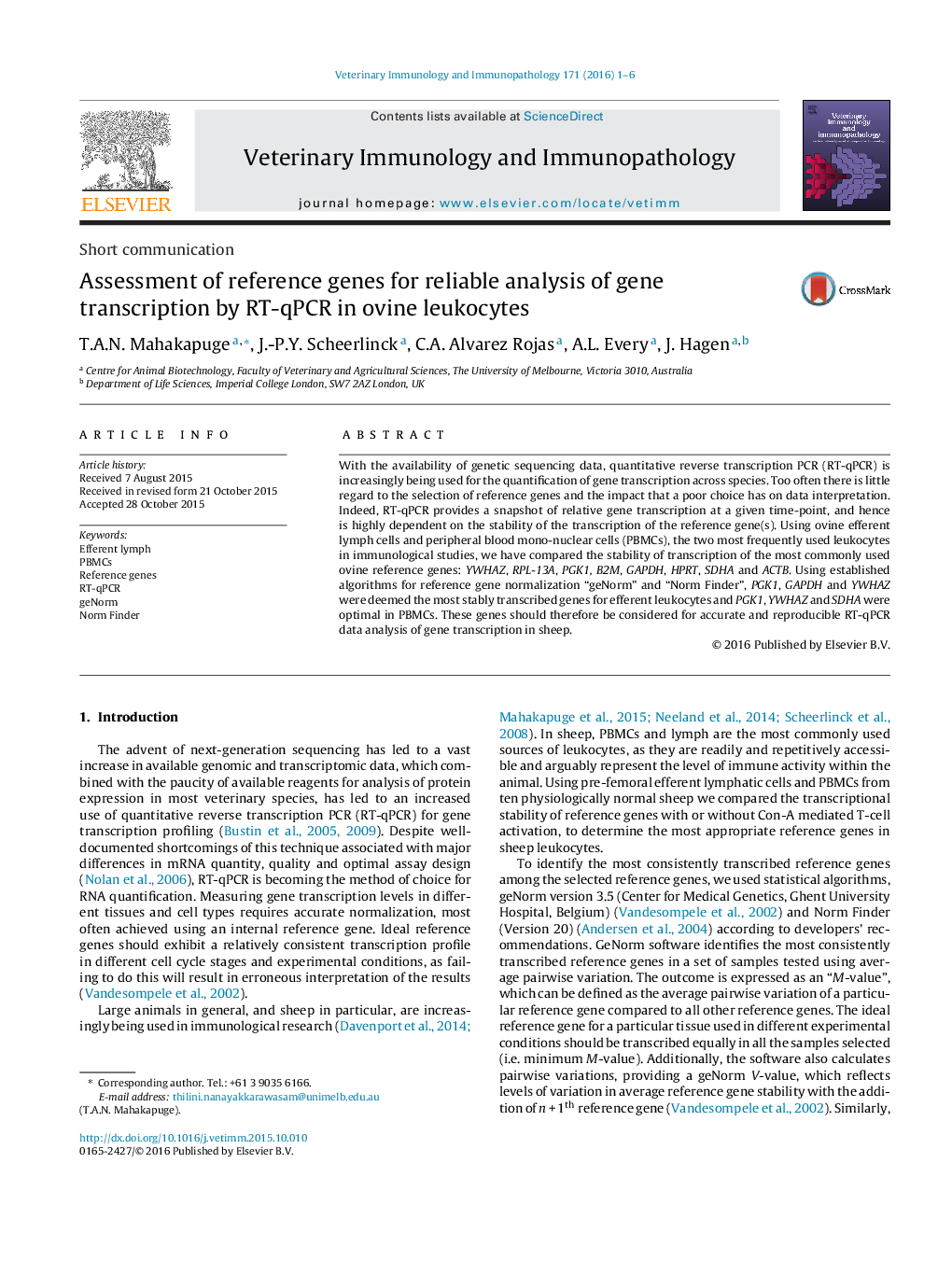| Article ID | Journal | Published Year | Pages | File Type |
|---|---|---|---|---|
| 5796614 | Veterinary Immunology and Immunopathology | 2016 | 6 Pages |
With the availability of genetic sequencing data, quantitative reverse transcription PCR (RT-qPCR) is increasingly being used for the quantification of gene transcription across species. Too often there is little regard to the selection of reference genes and the impact that a poor choice has on data interpretation. Indeed, RT-qPCR provides a snapshot of relative gene transcription at a given time-point, and hence is highly dependent on the stability of the transcription of the reference gene(s). Using ovine efferent lymph cells and peripheral blood mono-nuclear cells (PBMCs), the two most frequently used leukocytes in immunological studies, we have compared the stability of transcription of the most commonly used ovine reference genes: YWHAZ, RPL-13A, PGK1, B2M, GAPDH, HPRT, SDHA and ACTB. Using established algorithms for reference gene normalization “geNorm” and “Norm Finder”, PGK1, GAPDH and YWHAZ were deemed the most stably transcribed genes for efferent leukocytes and PGK1, YWHAZ and SDHA were optimal in PBMCs. These genes should therefore be considered for accurate and reproducible RT-qPCR data analysis of gene transcription in sheep.
